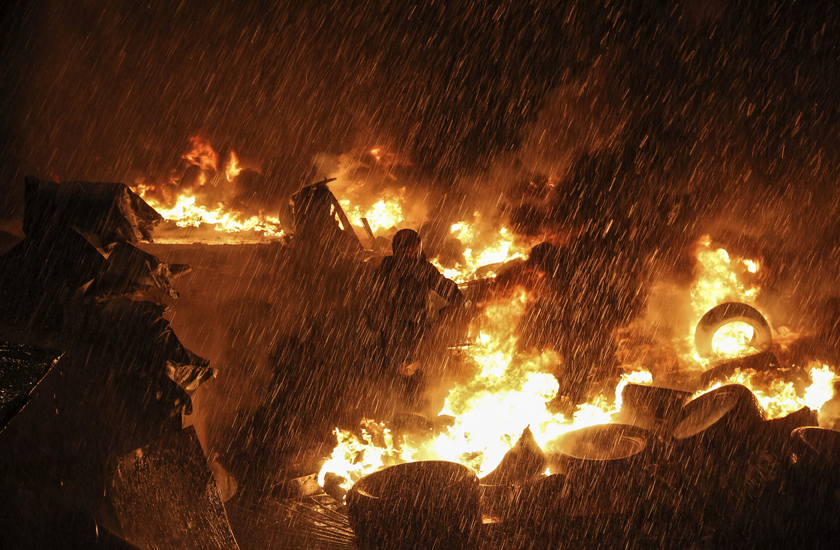The resignation of Ukrainian Prime Minister Mykola Azarov comes, after two months of unrest in the country, at the start of an emergency session of parliament. Azarov declared he was quitting because of the threat to the economy caused by more than 60 days of unrest.

“For the purpose of creating additional possibilities of social and political compromise, for the peaceful solution of the conflict, I’ve made a personal decision to ask the Ukrainian president to accept my resignation from the post of prime minister”, Azarov wrote in a statement. “During the standoff, the government has done everything for a peaceful solution of the conflict,” Azarov continued. “We’ve been doing everything not to let bloodshed occur, to prevent the violence escalating, not to have human rights infringed upon. The government has made sure the economy and social security have functioned in extreme conditions.”
“NOT A VICTORY”, BUT THE CLOSEST THING TO IT
“It’s not a victory. It’s only a step to the victory,” said the Udar party leader and one of the prominent opposition leader so far, Vitali Klitschko. The 66 year old Azarov, who has led Ukraine’s government since President Viktor Yanukovych was elected in 2010, has been an influential and controversial figure on the Ukrainian political scene since the independence from Ussr. He was involved in a high-level corruption scandal while heading the tax office under the then-president Leonid Kuchma, his voice was recorded by a Kuchma’s bodyguard while ordering to use tax inspectors to stalk political enemies, and during the last two months of demonstrations of Euromaidan, he often referred to protesters as “terrorists” and, while a violent police crackdown was leading to the deaths of five protesters, not only insisted that berkut did not open fire on people, but that the they were not even armed, a claim contradicted by many videos available on the Internet.
Since the beginning of Euromaidan, he lost so much of his credibility that, at the recent World Economic Forum in Davos he was not invited to attend all the meetings.
AN EXIT STRATEGY?
According to the oppositions, Azarov’s resignation removes one of the most despised figures after Yanukovich himself. Although under the constitution the resignation of the prime minister means the resignation of the entire government, the move it’s still far from the opposition’s demands.
On his way to an exit strategy, Yanukovych met yesterday with the three opposition leaders and agreed to revoke controversial anti-protest laws that set the Euromaidan on fire. But other points are still on the table, like the proposed amnesty for arrested protesters: “only those who leave Independence Square will get amnesty” said Mykhailo Chechetov, a MP of the ruling Party of Regions. A compromise between Yanukovych and the opposition is still difficult, until this condition is valid.
The resignation of Ukrainian Prime Minister Mykola Azarov comes, after two months of unrest in the country, at the start of an emergency session of parliament. Azarov declared he was quitting because of the threat to the economy caused by more than 60 days of unrest.




